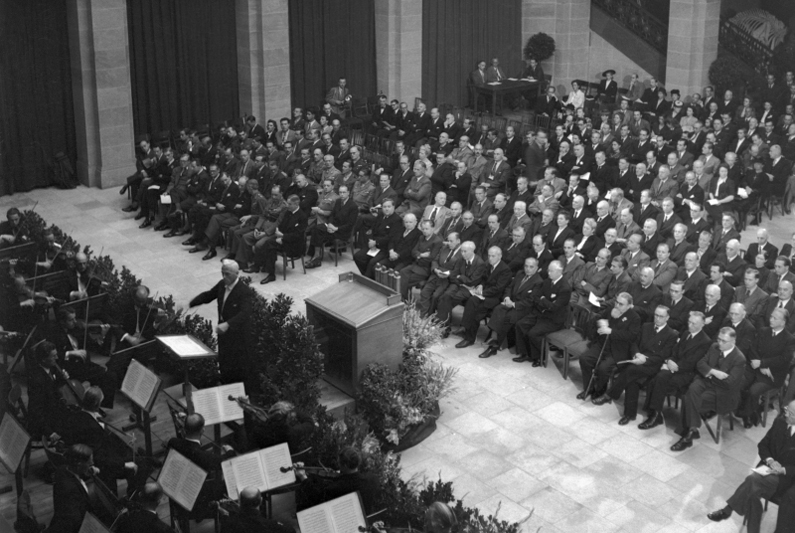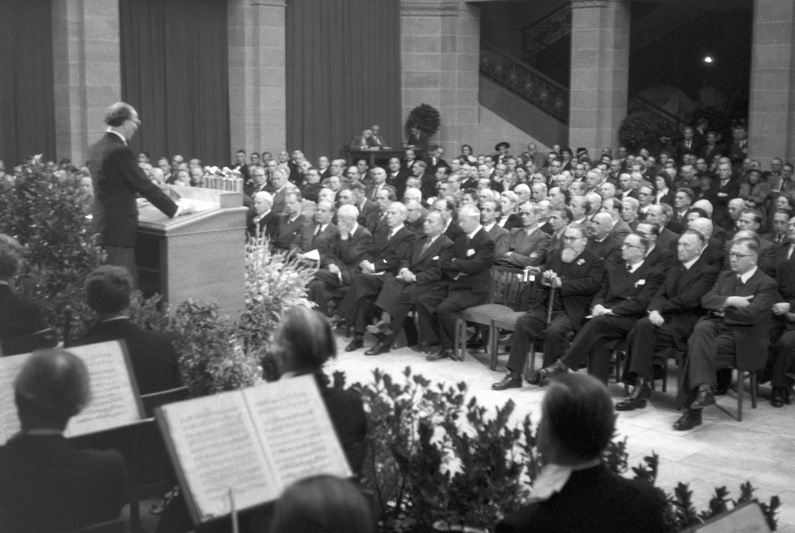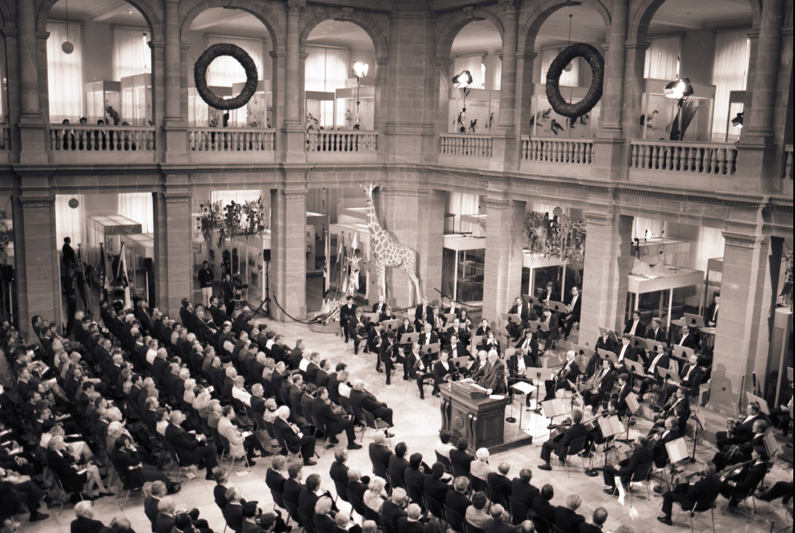“Never before was a state ceremony, that was meant to usher in a new chapter in the annals of a great nation, held in such a bizarre setting,” constitutional lawyer Carlo Schmid, one of the authors of the "Grundgesetz" (Basic Law), wrote in his memoirs about what took place on 1 September 1948 at Zoologischen Museum Alexander Koenig. “In the main hall of this edifice comprising massive blocks of stone, we stood, the flags of the federal states above us, taxidermied animals from the four corners of the world all around us, feeling somewhat out of place in this exotic wildlife scenery.”
The date was 1 September 1948, and the event Schmid is describing here was the opening ceremony of the Parliamentary Council, which had been formed to draft the new nation’s Basic Law. The venue was the atrium of the natural history museum.
Archival photos of the event reveal that the setting wasn’t as “earthy” as Schmid made it out to be, however. Thanks to the use of heavy drapery, the animal “attendees” were concealed from view, and the only animals the human attendees could actually see were a handful birds in glass cases on the upper level. As for the flags of the various federal states, they were out in front of the building, not inside it. But Schmid’s characterisation of the setting as bizarre was spot on. The federal-state flags underscored that, already at this juncture, in the three Occupation Zones there were democratically elected parliaments, all of which had elected the 65 members of the Parliamentary Council, which was now convening for the first time.
The ambitious aim that united the members of the parliamentary council was to avoid making the same mistakes that had led to the collapse of German democracy in 1933. At the opening session of the Parliamentary Council on 1 September 1948, North Rhine-Westphalia Minister President Karl Arnold exhorted the Council members as follows: “Bear in mind that the Basic Law that you are about to draft must be to the liking of the German people, so as to ensure that their relationship with and faith in the basic tenets of civic life remain intact. Each and every member of the German body politic must be imbued with the unshakeable belief that the government will do everything within its power to safeguard and guarantee their inalienable human rights and to ensure that the German people can live their lives free from fear and anxiety.”



